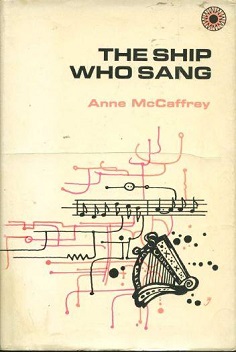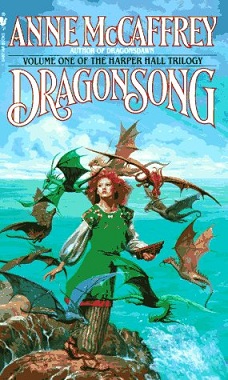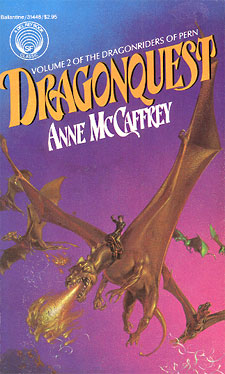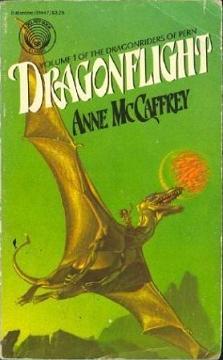
The Ship Who Sang
Anne McCaffrey
205 pages
published in 1969
Some writers you can only appreciate if you discover them in the golden age of science fiction — twelve — because at that age you’re less likely to notice the two dimensional characters, slipshod plotting or obnoxious politics you would’ve noticed as a more experienced reader. McCaffrey is such a writer for me. I loved her books when I was twelve and reading them from the local library, but trying my hand at some of her later works ended in disappointment. There’s also the danger of rereading cherished childhood classics and finding that in hindsight, they’re not so great after all. With McCaffrey’s early Dragonriders novels I already took that gamble and got lucky, now I’ve reread perhaps her best known novel outside that series and see if The Ship Who Sang was as much of a tearjerker as I remembered.
Sentiment is an underrated emotion in science fiction, something we’re a bit embarrassed about, but which plays a greater role than you’d expect in such a “rational” genre. Quite a few classics thrive on it — “Helen O’Loy”, “Green Hills of Earth”, “Faithful to Thee, Terra, in Our Fashion” all spring to mind — and as I remembered The Ship Who Sang, it positively wallowed in it, in this story of a severely disabled girl whose only hope for any sort of life was to become the “brain” of a spaceship, who then found love in the arms of her “brawn” partner only to lose him to cruel, cruel fate. The perfect sort of story for a sensitive twelve year old, but would it hold its appeal?


